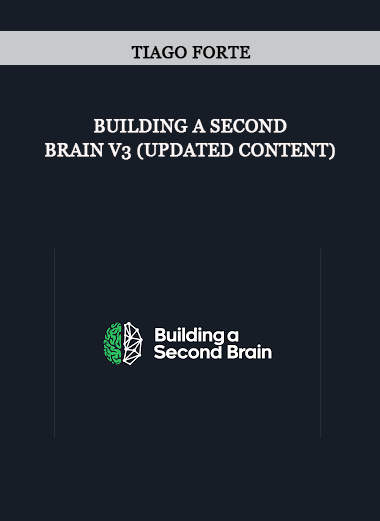Courses Infomation
Talking About Sex with Every Client by Douglas Braun-Harvey
 Talking About Sex with Every Client by Douglas Braun-Harvey
Talking About Sex with Every Client by Douglas Braun-Harvey
**More information:
Description
Possibilities to start and lead sex-related conversations in the very first client session
The six sexual health principles that guide therapy selection and actions
Take away a customized evaluation plan that highlights your existing accomplishments and suggests fresh approaches to engaging clients in sex-related talks.
How come you are aware that discussing sex with your client is appropriate, but you just can’t seem to get yourself to do it?
Clients want therapists to open up knowledgeable, assured, and pertinent conversations about sex, yet many therapists unintentionally fall short of this goal. Clinicians frequently lack the guidance or education necessary to discuss sex with assurance. Too frequently, the answer to this problem is to completely avoid the subject of sexual health or to direct them to a nearby sex specialist. Unfortunately, this frequently results in the client never having the conversation or, worse still, leads them to feel that sex is something that is only brought up during emergencies or when someone has been wounded.
The goal of this course is to increase the confidence and readiness of clinicians of all levels to begin and facilitate sexual health dialogues with their clients. Douglas Braun-Harvey, a therapist and sex specialist, will provide you a variety of tools so you may concentrate your treatment on the positive parts of sex. After attending this class, you’ll be able to:
Recognize how the six pillars of sexual health serve as stepping stones for developing sex-related interactions.
Use these basic discussion techniques in psychotherapy with individuals, couples, families, and groups.
Get over the client and therapist’s innate reluctance to discuss sex
Recognize typical client sexual concerns, issues, and disorders
Integrate evaluation tools for sexual health to enhance diagnosis and treatment planning.
The intention is for you to depart with particular techniques and interpersonal abilities that boost your self-assurance in discussing sex on a personal and professional level!
Keeping Sexual Talk Out of Therapy?
Therapy avoids sexual topics
Clients who shun sexual conversation
The issue of avoiding sexual topics
evaluating current degree of readiness for sex conversation
Sexual Health Dialogues
The six “S” are: The most common ways to avoid discussing sex
Keeping your nervousness under control while discussing sex
Are you “prematurely evaluating” things?
What is sexual wellness?
guidelines for sexual health
Cultural and ethical underpinnings of sexual health
Values pertaining to sexual health
How Come Sexual Health?
Personal sexual health reflection
Self-evaluation of the sexual health of the client
Improve treatment results by talking about sexual health
The first six principles of sexual health
Consent
Non-exploitation
STI, HIV, and unintended or undesired pregnancy prevention
Honesty
Common Values
Pleasure
Basics of Sexual Health Discussion
putting off judgment
Confirm your sexual enjoyment.
An essential and fundamental human need is sexuality.
attempts to resolve a sexual fear or concern through behavior or symptoms
stage of preparation for changes in sexual health
The Most Important Sexual Health Conversations
Create a comfortable mental environment
Put off making judgments on sexual behavior
Process Here/Now therapeutic sexual health moments
Integrate counseling ideas with sexual health tenets
Refrain from interfering with the discussion of sexual health
therapist openness
In individual, couple, and group therapy, sexual health is discussed.
For interns and supervisees, three sexual health conversational strategies
More information about Medical:
Medicine is the science and practice of establishing the diagnosis, prognosis, treatment, and prevention of disease.
Medicine encompasses a variety of health care practices evolved to maintain and restore health by the prevention and treatment of illness.
Contemporary medicine applies biomedical sciences, biomedical research, genetics, and medical technology to diagnose, treat, and prevent injury and disease,
typically through pharmaceuticals or surgery, but also through therapies as diverse as psychotherapy, external splints and traction, medical devices, biologics, and ionizing radiation, amongst others.
Medicine has been around for thousands of years, during most of which it was an art (an area of skill and knowledge) frequently having connections to the religious and
philosophical beliefs of local culture. For example, a medicine man would apply herbs and say prayers for healing, or an ancient philosopher and physician would apply bloodletting according to the theories of humorism.
In recent centuries, since the advent of modern science, most medicine has become a combination of art and science (both basic and applied, under the umbrella of medical science).
While stitching technique for sutures is an art learned through practice, the knowledge of what happens at the cellular and molecular level in the tissues being stitched arises through science.
Salepage : Talking About Sex with Every Client by Douglas Braun-Harvey
About Author
<author content>


![TTC - What Are the Chances - Probability Made Clear [12 courses DVD-Rip] of https://crabaca.store/](https://crablib.info/wp-content/uploads/2022/01/TTC-What-Are-the-Chances-Probability-Made-Clear-12-courses-DVD-Rip.png)




























Reviews
There are no reviews yet.